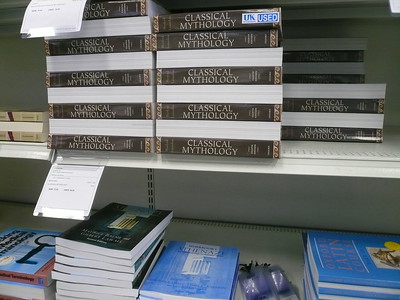Moody’s Investor Service has downgraded McGraw-Hill, Pearson and Cengage Learning to Caa2 – which is, in one word, junk. Three of the four largest college textbook publishers are, in Moody’s humble opinion, likely to default on their debt obligations. Imminently.
In August. Right before classes start. Three huge textbook publishers all kind of look like they might crash and burn on the textbook publishing industry’s equivalent of Christmas Eve.
Defaulting on debt obligations – or declaring bankruptcy to pull off a controlled flop – isn’t good. Of course, bankruptcy doesn’t mean going out of business – although it might. But it does raise questions regarding the availability of course materials for future semesters. Should publishers declare bankruptcy, all bets on being able to get textbooks might be off. At least for a while.
Bankruptcy is a federal court process, and it moves at whatever pace the court allows. The affected publishers may or may not be able to produce or distribute textbooks. Or they may not be able to produce them in sufficient number to meet demand. Suppliers may refuse to continue doing business with them.
Ultimately, it means that students may not be able to get the textbooks they need for their classes on time. The Fall semester is likely not in doubt, but bankruptcy proceedings could negatively impact the Winter semester.
WCC’s faculty would do well to keep a close eye on this situation as it develops in the coming month or two. Instructors and departments that use/require McGraw-Hill, Pearson or Cengage texts should develop an alternate text plan for the Winter semester. If one, two or all three publishers go down, readily available substitute texts could help lessen the frustration of yet-another-impact of the COVID-19 pandemic.
Photo Credit: Dan Hancock , via Flickr


















